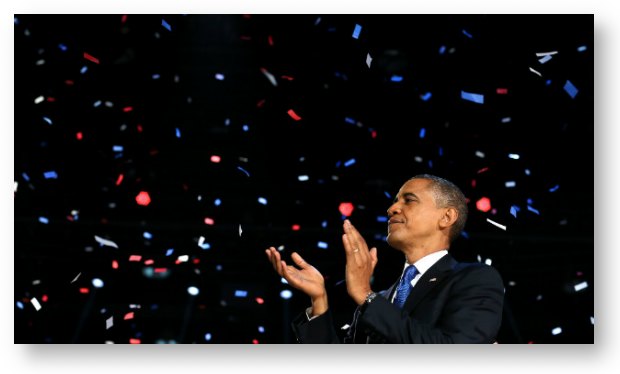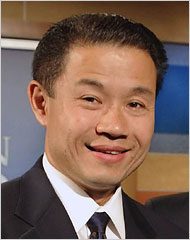As I’m sure almost everyone has heard about, a couple of weeks ago the Arizona legislature passed a new law (SB 1070), signed by the Governor, that allows local police to check the immigration status of anyone they suspect of being an unauthorized immigrant. In making being in the state without authorization a crime, Arizona police can then arrest and begin deportation proceedings against those who cannot properly document that they are legal immigrants.
As many critics of the law point out, the law basically legalizes racial profiling against Latinos, anyone who looks Latino and more generally people of color since it is highly unlikely that this new law can be carried out without the police resorting to racial profiling against the racial/ethnic group most often associated with the issue of unauthorized immigration: Latinos. In other words, it is highly unlikely that Whites will be stopped in large numbers by police and told to prove that they’re in the U.S. legally.
My family and I had plans on visiting Arizona this summer, seeing some friends, and camping at the Grand Canyon (it would have been my daughter’s first visit to the Grand Canyon). But along with many people in the U.S. and around the world who condemn this law, including many Asian Americans, we decided to act on our opposition to this new law by canceling our trip and are now boycotting Arizona. My daughter was disappointed but certainly understands and supports the reason behind it.
Others have written very detailed and convincing critiques of Arizona’s law and I don’t want to just echo what they’ve already said. Instead, I would like to reemphasize some points made by Debra J. Saunders at the San Francisco Chronicle. She points out that while it’s natural and generally for critics of Arizona’s law to focus on Republicans for condemnation, Democrats are not completely free of blame either:
President Obama called the Arizona law “misguided” and said he favors “commonsense comprehensive immigration reform.” It’s all lip service. President Obama reneged on his 2008 campaign pledge to push immigration reform – with a path to citizenship for undocumented aliens – during his first year in office because, well, it’s political poison.
At a Cinco de Mayo event last week, Obama had a new promise – “to begin work this year” on an immigration bill. In Spanish that translates into: Adios, amigos. Of course, not all Latino voters want to relax immigration laws, but to the extent that they do, they have guaranteed that the Democratic Party will take their votes for granted.
Meanwhile, why should Republicans stick their necks out for a demographic that abandoned John McCain in the 2008 presidential election? He risked his political ambitions by pushing for a federal bill with a pathway to citizenship in 2007 and then, according to an Edison/Mitofsky exit poll, McCain won a lousy 31 percent of the Latino vote- down from George W. Bush’s 44 percent in the 2004 presidential contest.
Obama helped kill that bill, and he won 67 percent of the demographic.
When it’s in their interests, Democrats ditch their pro-illegal immigration corner. In 2003, the Democratic California Legislature passed a bill to allow illegal immigrants to obtain driver’s licenses. Voters revolted and recalled Gov. Gray Davis, who signed the measure. In a craven act of cowardice, the Legislature quickly voted to rescind the bill it had passed.
In 2009, the Obama administration deported 5 percent more illegal immigrants than the Bush administration deported in 2008. As part of his immigration reform proposal, New York Sen. Chuck Schumer, a Democrat, is pushing for a national ID card for all American workers – the very type of documentation that critics of the Arizona law have said will turn Arizona into the “Your papers, please” state.
Saunders’ last point about Democratic Senator Chuck Schumer deserves particular attention. A few months ago, Schumer and South Carolina Republican Senator Lindsey Graham laid out their “blueprint” for comprehensive immigration reform (this was before the Arizona law as passed). As printed in the Washington Post, some of their provisions directly mirror the anti-immigrant sentiment that prompted the Arizona law:
We would require all U.S. citizens and legal immigrants who want jobs to obtain a high-tech, fraud-proof Social Security card. . . . We would bolster recent efforts to secure our borders by increasing the Border Patrol’s staffing and funding for infrastructure and technology. More personnel would be deployed to the border immediately to fill gaps in apprehension capabilities.
Other steps include expanding domestic enforcement to better apprehend and deport those who commit crimes and completing an entry-exit system that tracks people who enter the United States on legal visas and reports those who overstay their visas to law enforcement databases. . . .
For the 11 million immigrants already in this country illegally . . . they would be required to admit they broke the law and to pay their debt to society by performing community service and paying fines and back taxes. These people would be required to pass background checks and be proficient in English before going to the back of the line of prospective immigrants to earn the opportunity to work toward lawful permanent residence.
Regardless of their political ideology, almost everyone generally agrees that as it stands, our current immigration system and policies are broken and need to be fixed. For years, conservatives have argued for an strict “enforcement first” approach that focuses on keeping unauthorized immigrants from entering in the first place and deporting as many as possible those already in the U.S. (or at least making life so miserable for them that they voluntarily leave the country).
Historically, Democrats have supported a more forgiving approach to immigration reform that, while acknowledging their unauthorized status, also recognizes the contributions that they make to the economy through sales, income, and other taxes that they pay and in making labor-intensive industries such as agriculture and construction more globally competitive, to name just a few.
But nowadays, as Julia Preston at the New York Times writes, it seems that Democrats have become just as “enforcement-first” as Republicans:
The enforcement would be more far-reaching than anything in place now — or anything proposed by the administration of President George W. Bush. It begins with “zero tolerance†for immigrants trying to enter the country illegally, by tightening border enforcement and by barring them from taking jobs in the United States.
“It shows how far the Democrats have moved in terms of tougher and tougher enforcement,†said Edward Alden, a senior fellow at the Council on Foreign Relations who studies immigration. “Across the board you see language that would be very comfortable in a proposal written by Republicans.â€
This change in direction by the Democratic Party is not an encouraging sign for supporters of addressing the issue of unauthorized immigration in a more holistic manner (recognizing the humanity of the people involved, the economic reasons many decide to enter the U.S. in the first place, the diversity of the unauthorized immigrant population to include not just border crossers but visa overstayers, and the contributions they make to the U.S.). In fact, while there are still some Democratic politicians who share these beliefs, I would say that as a rule, we can no longer rely on the Democratic party or Democratic politicians to be a staunch ally in terms of supporting a humanistic and holistic approach to comprehensive reform. And as much as I hate to say it, this includes President Obama.
Granted, much of the change in attitude among Democratic politicians toward a stricter “enforcement-first” approach is due to the practical realities of wanting to appeal to their mostly White constituents to get reelected (itself a reflection of the emerging White backlash movement). Nonetheless, for many liberals like me, seeing the Democratic Party distancing itself from their traditional support of true comprehensive immigration reform feels like a kick in the stomach and a betrayal.
At least when it comes to the issue of immigration reform, many within the Democratic Party seem to be making choosing what’s convenient over what’s right.



